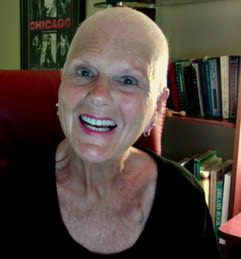
While states such as Texas and Florida have outlawed practices that provide the option for physician-assisted dying to terminally ill patients, Oregon leads the way in helping ill patients decide their fate. Oregon and other states, such as New Jersey, Vermont and California, have enacted laws that allow people with terminal illnesses to obtain a prescription for lethal medication so they can decide how and when they will die. Patients living in states that do not provide medical aid in dying are now traveling to states that protect their right to die, starting a trend of death tourism.
Leading the charge in physician-assisted dying is Dr. Nicholas Gideonse. Dr. Gideonse is the director of End of Life Choices in Oregon. In what some believe to be a legal “gray area,” Dr. Gideonse is offering patients from states where medical aid in dying is illegal the ability to choose how they will die.

Dr. Nicholas Gideonse
Credit: YouTube
The patients must travel to Portland and meet with Dr. Gideonse in person, where he can prescribe them a lethal cocktail of drugs to end their lives. In order to receive the medication, patients must have been given a prognosis of less than six months to live, and they must fulfill all of the other stringent requirements of Oregon’s Death with Dignity Act.
Those seeking medical aid in dying must spend at least 15 days in Oregon. Two doctors and witnesses must sign off on the paperwork. The patient must be able to verbalize their desire to end their life due to their terminal illness. It must be clear that this decision is the patient’s alone.
Once the prescription is filled, the patient must take the medication of their own volition, and no one can assist or help them. It’s important for the experience to be the patient’s at all stages of the process.
Oregon was the only state to allow non-residents to receive medical aid in dying, becoming the forerunner of the death tourism practice, until Vermont recently passed legislation to allow the same. Lynda Bluestein, a terminal cancer patient, knows she will likely die soon. She is a resident of Connecticut, where medical aid in dying is illegal. During the summer of 2022, Bluestein and physician Diana Barnard sued Vermont to allow non-residents such as Bluestein to obtain a legal prescription to end their lives.

Lynda Bluestein
Credit: Addison County Independent
In March 2023, Bluestein settled with Vermont and won the right to seek a dignified death. In preparation for the verdict, which Bluestein believed she would win, she told her family that she would likely die this year. With no desire to die in a hospital bed like her mother did, Bluestein believes everyone should have the right to die as they desire.
“I want to live the way I always have, and I want my death to be in keeping with the way I wanted my life to be always,” Buestein said in a story on Death with Dignity’s website. “I wanted to have agency over when cancer had taken so much for me that I could no longer bear it. That’s my choice.”
Though Bluestein won her case, Vermont is still deliberating over the recently introduced bill, which will allow all out-of-state patients to receive medical aid in dying. With terminal patients realizing they can take control of their death instead of letting the fear control them, death tourism may soon become a more common practice. Those living in states with no medical-aid-in-dying laws desire the same right as others to choose how they will die.

 Portland May Be the US’s First Death Tourism Hot Spot
Portland May Be the US’s First Death Tourism Hot Spot


 Our Annual Seven Holiday Gifts for Someone Who Is Grieving, 2024 Edition
Our Annual Seven Holiday Gifts for Someone Who Is Grieving, 2024 Edition
 “Making Mobiles” by Karolina Merska
“Making Mobiles” by Karolina Merska
 “Hands Up to the Sky” by Michael Franti & Spearhead
“Hands Up to the Sky” by Michael Franti & Spearhead














